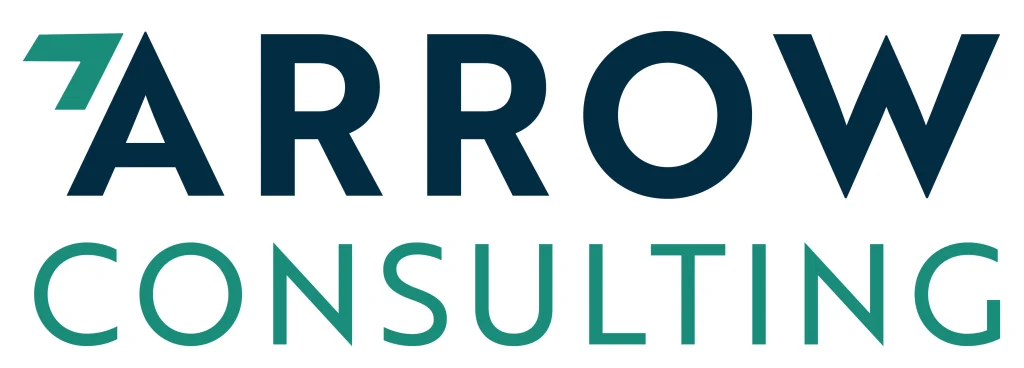
how to Start a Drug and Alcohol Rehab Center
Embarking on the journey of starting a drug and alcohol rehab center is akin to setting sail on an uncharted course. The complexities involved demand meticulous planning to ensure a successful outcome. A comprehensive business plan is essential as it acts like a blueprint, outlining the vision, objectives, and strategies for establishing the center. This document is crucial for securing funding and guides the decision-making process.
Equally important is the understanding of financial dynamics, which involves creating a detailed financial model. This model should project cash flow, estimate costs such as licensing and marketing, and detail expected revenue streams. At Arrow Consulting, financial modeling is a specialty, aiding clients in painting an accurate picture of the financial landscape they will navigate.
Location and Community Assessment
Choosing the right location for a rehab center can make or break its success. Conducting a community needs assessment helps identify gaps in service and determines what type of facility would best serve the area. Considerations such as proximity to medical facilities, zoning laws, and accessibility are paramount.
Understanding the community’s cultural and demographic makeup can also influence the types of services offered. For instance, a location with a high population of young adults might benefit from programs targeting substance use prevalent within that age group. Arrow Consulting helps organizations delve into these aspects, ensuring facilities are strategically positioned for success.
Licensing and Accreditation
Licensing
Navigating the legal requirements for opening a rehab center is akin to navigating a labyrinth. Each state has its own regulations governing the licensure of rehabilitation facilities, ranging from zoning approvals to operational standards. Acquiring a license involves rigorous compliance with health and safety standards, which can be overwhelming without expert guidance.
Accreditation
Achieving accreditation from recognized bodies such as CARF or The Joint Commission is a symbol of quality and trust. Accreditation not only enhances the credibility of a rehab center but also attracts more clients and funding. It shows that the facility adheres to high standards of care and operational excellence.
Staffing and Training
Success in rehabilitation services lies heavily in the hands of qualified and compassionate staff. Building a dream team involves recruiting experienced professionals like medical directors, counselors, and administrative staff. Besides the obvious roles, consider ancillary staff like dietitians and holistic therapy experts who can enrich the treatment experience.
Training should be ongoing to keep staff updated with the latest treatment methodologies and industry developments. Arrow Consulting often advises clients to invest in robust training programs that foster growth and adaptability, contributing to high staff retention rates and enhanced client outcomes.
Program Development
The heart of any rehab center is its treatment programs. Creating impactful programs requires a blend of scientific research, innovative therapies, and personalized care strategies. It’s crucial to define your treatment models early on, be it outpatient, inpatient, or a mix of both.
At Arrow Consulting, we emphasize the integration of evidence-based practices with innovative therapies. This dual approach ensures that programs cater to diverse client needs, offering a path to recovery that’s both effective and sustainable.
Anecdotal evidence from past clients underscores the importance of offering unique, customizable treatment paths. For example, incorporating art therapy or equine therapy can make a significant difference in patient engagement and recovery.
Marketing Strategies
Establishing a presence in the market is crucial for filling the beds in a rehab center. Effective marketing strategies encompass both digital and traditional channels. Online marketing, including SEO and social media campaigns, can significantly enhance visibility and attract prospective clients.
However, don’t overlook the power of community-based marketing. Engaging with local healthcare providers, community leaders, and social services can create a network that refers clients to your center. Arrow Consulting often works with clients to craft marketing plans that balance both approaches, ensuring optimal reach and engagement.
Financial Management
Strong financial management is the backbone of a successful rehab center. As the costs can range from property investments to personnel and operational expenses, it’s important to have a clear financial strategy. Arrow Consulting aids its clients in setting up fiscal management systems to monitor cash flow and ensure financial health.
Consideration should also be given to diversifying funding sources. This may include private investments, grants, or insurance reimbursements. A diversified financial foundation provides stability and room for growth, reducing reliance on any single revenue stream.
Community Outreach and Engagement
Creating a meaningful impact goes beyond the four walls of a rehab center. Building strong ties with the community fosters trust and goodwill, which can translate to increased referrals and support. Regular community outreach efforts, such as workshops and seminars, can enhance public awareness about substance use disorders.
Arrow Consulting advises clients to maintain an ongoing dialogue with the community. This can include collaborations with local schools, businesses, and public health organizations to amplify the center’s mission and broaden its impact.
Adapting to Industry Trends
The field of addiction treatment is constantly evolving. Staying abreast of the latest trends and innovations is crucial for maintaining relevance and improving patient outcomes. This might involve the adoption of telehealth services or the incorporation of emerging therapies.
Arrow Consulting’s approach involves equipping clients with the knowledge and tools to stay ahead of industry changes. This ensures that facilities not only meet but exceed the expectations of clients and regulatory bodies, setting new benchmarks for quality and care.
- Assess financial viability before committing resources.
- Conduct local market research to inform service offerings.
- Engage with expert consultants for streamlined operations.
- Maintain flexibility to adapt to evolving healthcare needs.
- Foster a culture of continuous improvement and innovation.

How much does it cost to start a drug rehab center?
Embarking on the journey to start a drug rehab center requires a substantial financial commitment, with costs varying widely based on factors such as location, facility size, and services offered. Generally, initial expenses can range from $250,000 to upwards of $1,000,000 or more. This includes costs for property acquisition or leasing, renovations, staff salaries, equipment, licensing, and marketing. At Arrow Consulting, we frequently advise clients that thorough financial planning and forecasting, which we specialize in, are crucial for anticipating and managing these expenses effectively. Our tailored financial models help clients understand potential costs and revenue streams, ensuring they are well-prepared to launch a sustainable facility.
Are rehab centers profitable?
Rehab centers can indeed be profitable, though success depends on several factors, including effective management, an understanding of market demands, and a commitment to providing high-quality care. Some centers see profit margins between 10% and 20%. Arrow Consulting has helped various centers optimize operations and increase profitability by focusing on efficient staffing, innovative treatment programs, and strategic marketing. It’s essential to strike a balance between delivering exceptional care and maintaining a financially viable business model. As clients often find, investing in accreditation and evidence-based practices can enhance both credibility and financial outcomes. Consider the long-term sustainability of your operations to achieve a profitable endeavor.
How much do rehab centers pay their staff?
Salaries at rehab centers can vary depending on the role, the individual’s experience, and the center’s location. Typically, medical directors might earn between $150,000 and $250,000 annually, while counselors may see salaries ranging from $35,000 to $60,000. Support staff, such as dietitians or administrative personnel, may earn between $30,000 and $50,000. Arrow Consulting emphasizes the importance of competitive compensation packages to attract and retain skilled professionals, which can significantly impact a center’s success. We also advocate for ongoing professional development, as this investment can lead to improved staff satisfaction and higher retention rates.
How to secure funding for a rehab center?
Securing funding for a rehab center involves exploring multiple financing avenues. Options include private investors, grants, loans, or insurance reimbursements. Developing a comprehensive business plan, which Arrow Consulting can assist with, is essential for convincing potential investors of your center’s viability. Additionally, building relationships with financial institutions and understanding grant opportunities, particularly those geared towards health services, can be beneficial. Diversifying funding sources not only offers stability but also enables growth and adaptability within the ever-evolving healthcare sector. Our experience at Arrow Consulting shows that a strong financial foundation is integral to launching and sustaining a successful rehab facility.
What are the licensing requirements for starting a rehab center?
Licensing a rehab center involves navigating a complex landscape of state-specific regulations. Requirements typically encompass zoning permits, health and safety standards, and operational compliance directives. At Arrow Consulting, we guide clients through this intricate process, ensuring they meet all legal obligations efficiently. Consulting with regulatory bodies early in the planning phase is critical to understanding these requirements and avoiding potential delays. Additionally, obtaining accreditation from organizations such as CARF or The Joint Commission enhances a facility’s credibility, attracting clients and funding, and demonstrating a commitment to high standards of care.
How essential is community engagement for a rehab center’s success?
Community engagement plays a pivotal role in the success of a rehab center. Building strong community relationships fosters trust, increases visibility, and encourages referrals. Arrow Consulting often advises clients to actively participate in local initiatives, collaborate with healthcare providers, and host educational workshops. These efforts not only raise awareness about substance use disorders but also position the center as a committed community partner. Engaging with the community also helps in understanding local needs and tailoring services accordingly. Remember, a rehab center’s impact often extends beyond treatment; it’s about promoting overall community health and well-being.
Resources
- Substance Abuse and Mental Health Services Administration (SAMHSA) – SAMHSA is the leading agency providing resources for substance abuse and mental health treatment in the United States.
- National Library of Medicine – The National Library of Medicine offers a wealth of information on addiction treatment, research, and best practices.
- National Institutes of Health (NIH) – NIH conducts and supports research on addiction and offers resources for treatment providers and individuals seeking help.
- Centers for Disease Control and Prevention (CDC) – The CDC provides valuable data and information on substance abuse trends, prevention strategies, and public health approaches.
- American Society of Addiction Medicine (ASAM) – ASAM is a professional society representing physicians and treatment providers in the field of addiction medicine.
